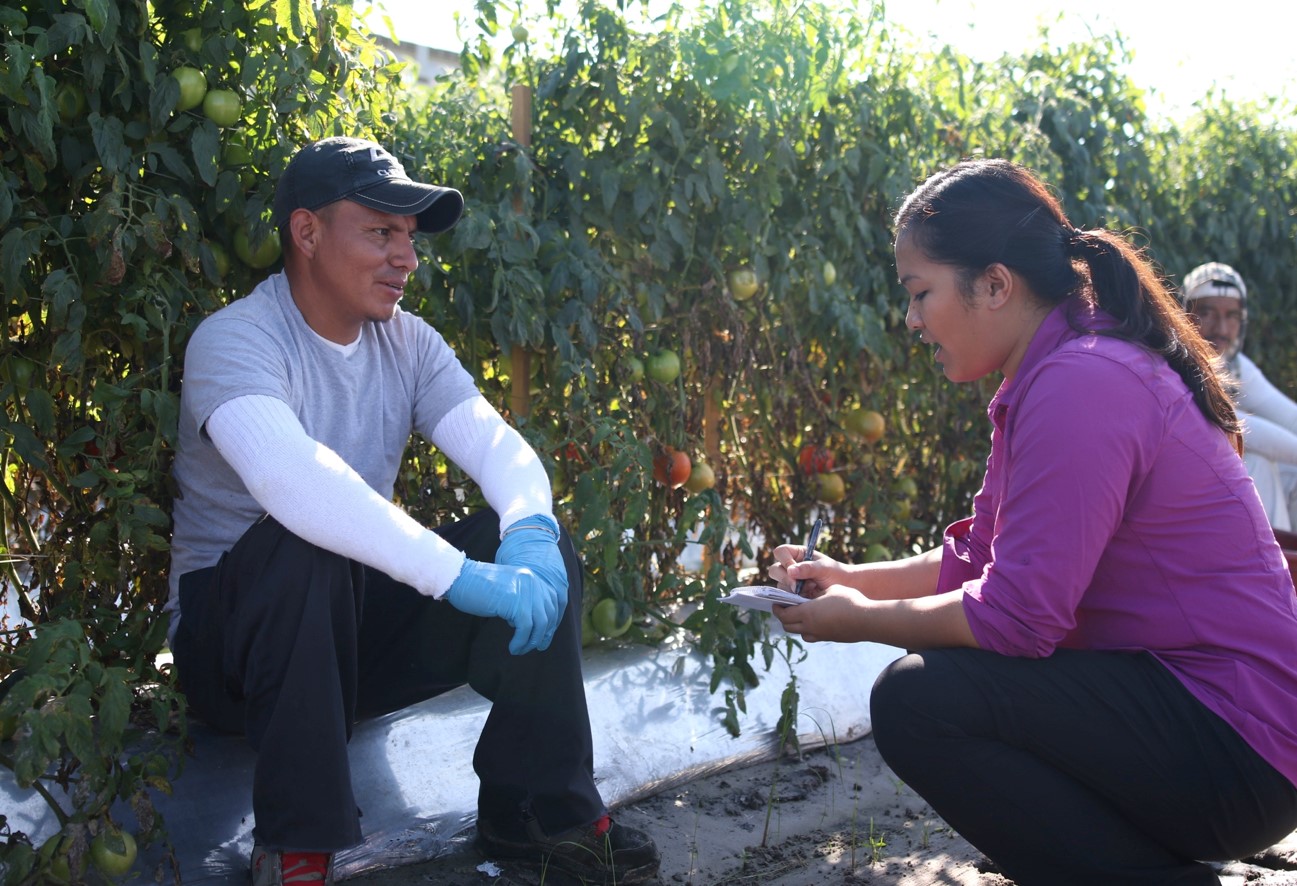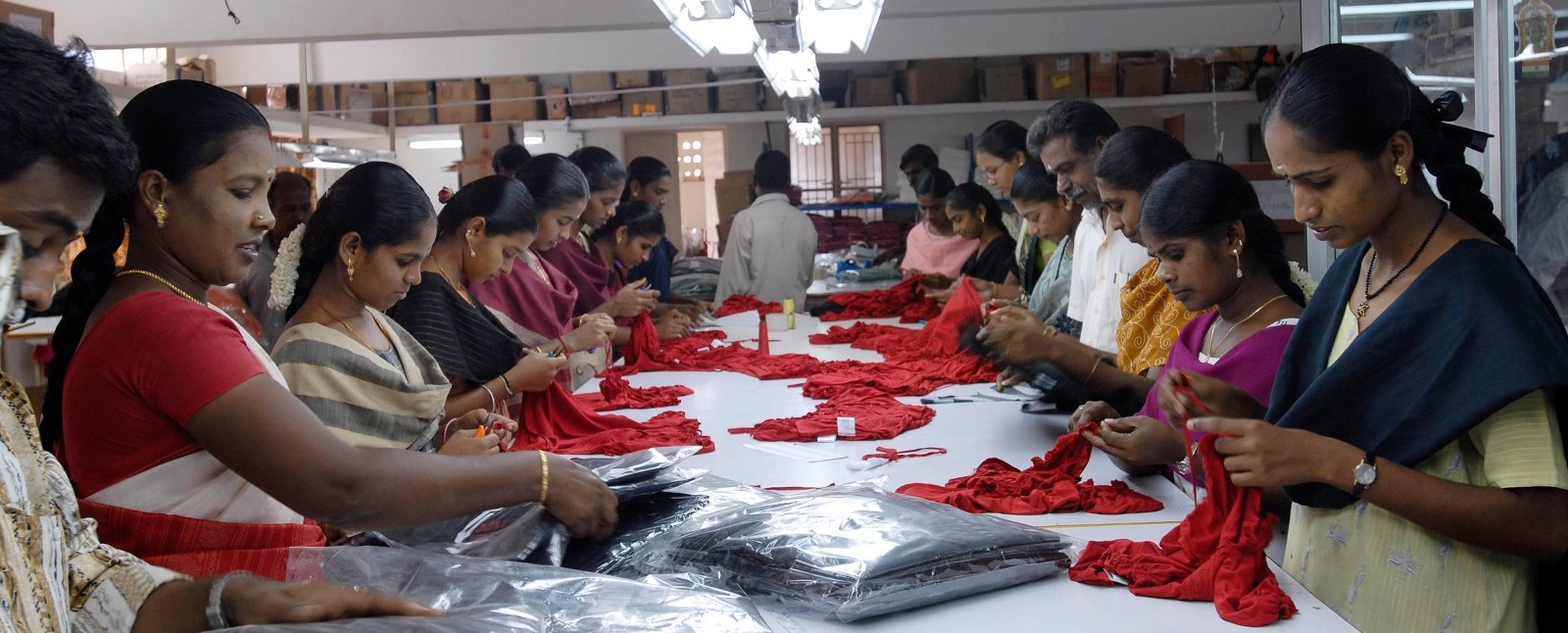Photo Credit: Dinodia Photos RM_Alamy
Freedom of Association and Collective Bargaining Rights are Essential to Codes of Conduct
Freedom of association, or the right of workers to form and join organizations of their choosing, is a fundamental right underpinning democratic workplace governance. Collective bargaining is an essential element of freedom of association that helps ensure that workers and employers have an equal voice in negotiations over wages and working conditions.
Freedom of association and collective bargaining are considered enabling rights: they are essential to empowering workers to secure and defend their other human and labor rights. When workers can organize, elect representatives, and collectively bargain over the terms and conditions of their work, they are better able to identify, report, and end labor rights abuses, including forced labor and child labor. Exercise of these rights builds effective mechanisms for problem-solving and accountability. Their exercise can help to balance power, improve working conditions, increase productivity, make businesses more transparent, and can build a culture of democracy in the workplace and beyond. Making sure workers’ voices are integrated into business decision-making supports business objectives of inclusivity, growth, and innovation.
The ability of workers to collectively organize and articulate their demands is a founding principle of labor relations, enshrined in numerous international agreements and standards. Through the International Labor Organization (ILO), a tripartite UN agency that brings together representatives of governments, workers, and employers to promote human and labor rights, the international community has affirmed the importance of freedom of association and collective bargaining in its key standards and conventions, including in the Fundamental Principles and Rights at Work, Convention No. 87, and Convention No. 98. For more on the ILO and key ILO conventions, see below.
ILAB is committed to ensuring workers can freely exercise their right to organize and that genuine worker voice is part of any effort to secure labor rights within supply chains. For more on worker voice, see ILAB’s Worker Voice Report.
Relevant ILO Conventions
The International Labor Organization (ILO) is a UN specialized agency that brings together representatives of governments, trade unions, and employers’ associations to promote social justice and internationally recognized human and labor rights by setting and supervising the application of conventions and recommendations, as well as promoting decent work and providing technical support to governments, trade unions, and employers. They are considered the minimum enabling rights people need to defend and improve their rights and conditions at work:
- Freedom of Association and Protection of the Right to Organize Convention, 1948 (No. 87).
- Right to Organize and Collective Bargaining Convention, 1949 (No. 98). This is supplemented by Recommendation 163.
- Forced Labor Convention, 1930 (No. 29). This is supplemented by Recommendation 35.
- Protocol of 2014 to the Forced Labor Convention, 1930. This is supplemented by Recommendation 203.
- Abolition of Forced Labor Convention, 1957 (No. 105).
- Minimum Age Convention, 1973 (No. 138). This is supplemented by several Recommendations, including Recommendation 146.
- Worst Forms of Child Labor Convention, 1999 (No. 182). This is supplemented by Recommendation 190.
- Equal Remuneration Convention, 1951 (No. 100). This is supplemented by Recommendation 90.
- Discrimination (Employment and Occupation) Convention, 1958 (No. 111). This is supplemented by Recommendation 111.
- Occupational Safety and Health Convention, 1981 (No. 155).
- Promotional Framework for Occupational Safety and Health, 2006 (No. 187).
- The ILO has a Helpdesk for Business on International Labor Standards, a free and confidential service providing expert technical advice to users on international labor standards and the Tripartite Declaration of Principles Concerning Multinational Enterprises and Social Policy.
Making Codes of Conduct More Effective
As a baseline, codes of conduct and audit tools must include internationally recognized standards on child labor, including hazardous work for children, forced labor, freedom of association (FOA) and collective bargaining (CB), occupational safety and health (OSH) and discrimination set forth in the ILO Declaration on Fundamental Principles and Rights at Work. They must also include standards on decent working conditions, including working time and appropriate payment of wages, as set forth in relevant ILO conventions. They must also account for national labor laws or protections specific to short- or fixed-term employment.
To be effective for purposes of preventing, identifying, mitigating, and, if needed, remediating labor rights violations, contracts should operate on a shared-responsibility model, rather than a risk-shifting model that places the entire responsibility for upholding labor and human rights standards on the supplier-party. In some cases, companies choose to sign agreements made with suppliers and worker organizations that bind all parties to agreed-upon standards and processes for remediating violations.
Effective contracts can be achieved by integrating the following principles of responsible, due diligence-aligned contracting:
- Responsible allocation of risks and obligations: Include a joint commitment to cooperate in carrying out ongoing, risk-based labor and human rights due diligence to support adherence to the code of conduct (rather than one-sided, supplier-only, promises of perfect compliance with the code).
- Responsible purchasing practices: Include a commitment by the buyer-party to engage in responsible sourcing and purchasing practices that create positive incentives across the supply chain to prevent violations.
- Remediation first and responsible exit: Include a shared commitment to prioritize worker- centered remediation if a labor rights violation occurs (rather than immediately resort to traditional contract remedies like order cancellations, suspension of payment, or contract termination). If one of the parties wants to disengage or exit the contract, they should do so responsibly, taking measures to mitigate the adverse labor and human rights impacts created by the exit. Note that some companies may choose to have a joint code of conduct that commits both companies to work together to uphold labor standards.
Examples
in Action
Fair Food Program (FFP)
The Fair Food Program (FFP) emerged from the Coalition of Immokalee Workers’ (CIW) successful Campaign for Fair Food, a worker-led organizing campaign to affirm the human rights of tomato workers and improve the conditions under which they labor.
The FFP is a unique farmworker- and consumer-driven initiative consisting of a wage increase supported by a price premium paid by corporate purchasers of Florida tomatoes, and a human-rights-based Code of Conduct, applicable throughout the Florida tomato industry. The price premium and the Code of Conduct, which were developed by tomato workers, growers, and corporate buyers in a groundbreaking collaboration, form the foundation of a worker-driven social compliance mechanism. The grievance mechanism component of the FFP is regarded as having successfully eradicated sexual harassment and coercion in Florida’s agricultural fields, one of the world’s toughest labor rights environments.
In 2023, ILAB awarded the Fair Food Standards Council (FFSC) $2.5 million over 2 years to assess and expand the successful Fair Food Program model by implementing a pilot project to promote human and labor rights on cut flower farms in Chile, Mexico, and South Africa.
The project aims to:
- Increase labor and human rights protections and compliance with labor laws on flower farms, and
- Increase understanding of factors affecting the scalability and replicability of the FFP model in pilot countries.

The project will support an initial feasibility study and assessment of an international expansion of the FFP model to promote labor rights and worker-driven social responsibility—a model that has been implemented in U.S. agriculture since 2011. The project will evaluate implementation of the FFP model in the three countries using a comparative assessment to determine which factors promoted or hindered the implementation.
For more information, visit: Coalition of Immokalee Workers' (CIW) Fair Food Program: Frequently Asked Questions and Project to Expand and Assess the Fair Food Program (FFP) Model for Promotion of Human Rights and Labor Rights Protections in International Agricultural Supply Chains


 Step 3: Develop a Code of Conduct
Step 3: Develop a Code of Conduct



